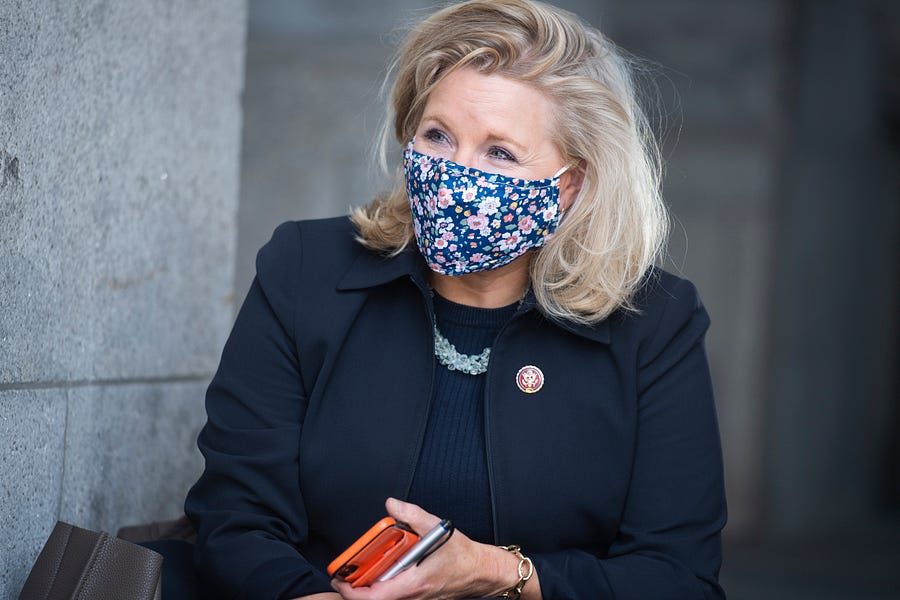Last week, when seven male members of the House Republican Conference ganged up on the sole female member of their leadership—Wyoming Rep. Liz Cheney—for supporting President Trump in a manner they deemed insufficiently unstinting, unwavering, and unthinking, they kicked off a new front in the fight to define the future of the Republican Party in the post-Trump era, an era they clearly worry will begin quite soon.
The polls are grim for the president’s re-election, and the Trumpiest of the Trumpsters seem to think that their future standing in the party will be determined not by whether he loses in the fall, but by how they spin it. They need to be able to blame anyone and anything other than President Trump himself, so they are creating a straw man argument that he is being stabbed in the back by a fifth column of disloyal Republicans rather than by his own words and actions.
It’s worth noting that internecine struggles among House Republicans are nothing new, but they have usually been about policy differences: banning earmarks, cutting government spending, reforming entitlements. The display by Reps. Matt Gaetz, Jim Jordan and others was pure schoolyard stuff: When you’re with Trump, you’re with Trump all the way. No exceptions. It’s also worth noting that some of the post-hoc claims by Trump supporters that the real issue was that Cheney backed a primary challenger to Rep. Tom Massie were obviously bunk (one of Cheney’s antagonists literally tweeted “Trump v Cheney” to describe his view of the dust-up).
If President Trump loses to former Vice President Biden in November, the obvious conclusion will be that he badly bungled the only issue that matters: the COVID-19 pandemic and the economic fallout. His response, which has featured quack medicine, happy talk, and passing the buck, was simply unequal to a presidential-level test of his leadership.
But if that narrative is unchallenged, then the politicians who have curried his favor and prospered in his shadow will have diminished influence in the future. So they have to try to change the story.
Cheney has often supported the president, but she also represents a “back to the future” option for the future of the party—advocating a return to fiscal responsibility, an assertive foreign policy, and competence. And there are many who agree with her.
The election is just under 100 days away. Polls can change. Former Vice President Biden is a deeply flawed candidate, with an unimpressive record, poor judgement, and often a mien of senile uncertainty. But, the verbal assault on Cheney was not the act of confident men.
It is a truism that churches grow by winning converts, not by burning heretics. The criticisms of Cheney—echoed and endorsed on Twitter by Donald Trump Jr.—will do nothing to win votes for the president or embattled House or Senate Republicans.
The fear and uncertainty that led to this incident are understandable. President Trump’s life has been guided by a simple obsession: The world is full of winners and losers, and he is a winner. But, if he fails to prevail in November against a man he describes as corrupt and weak, all the world will see him as a loser, and those who have hitched their wagons too closely to him clearly worry they will be, too.
Photograph by Tom Williams/CQ-Roll Call/Getty Images.






Please note that we at The Dispatch hold ourselves, our work, and our commenters to a higher standard than other places on the internet. We welcome comments that foster genuine debate or discussion—including comments critical of us or our work—but responses that include ad hominem attacks on fellow Dispatch members or are intended to stoke fear and anger may be moderated.
With your membership, you only have the ability to comment on The Morning Dispatch articles. Consider upgrading to join the conversation everywhere.